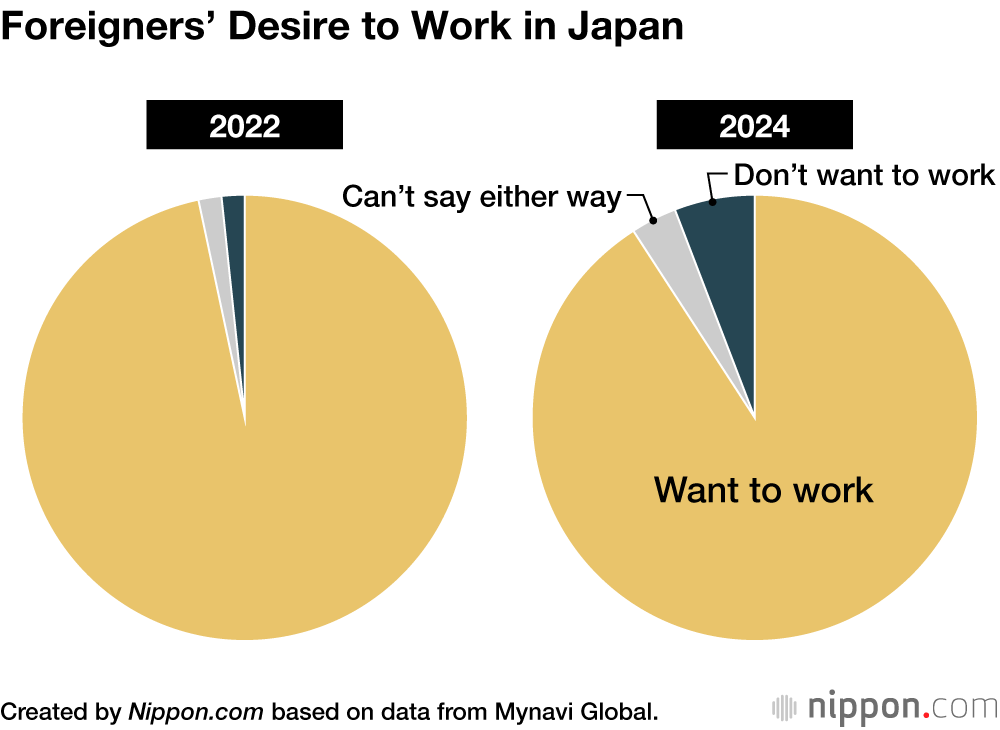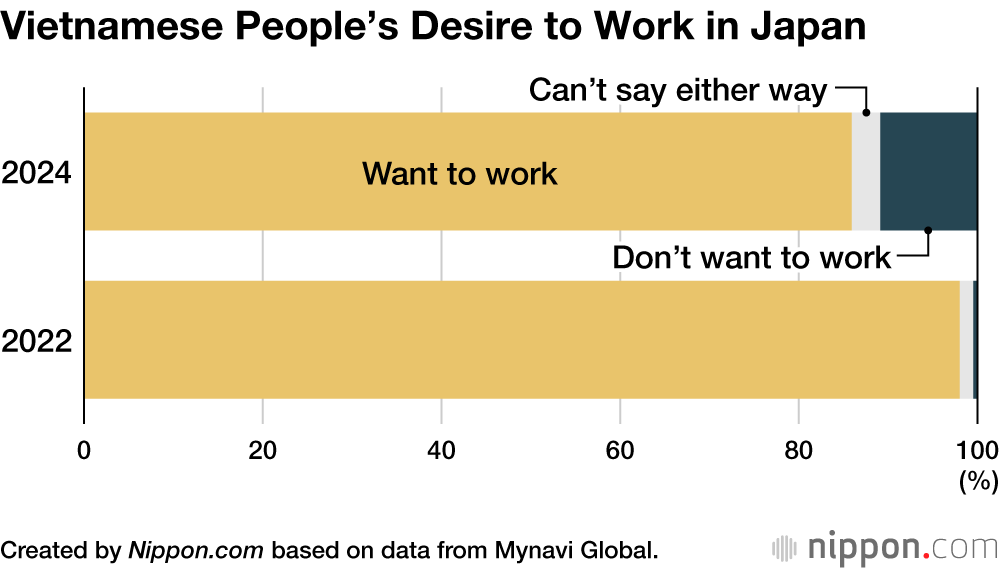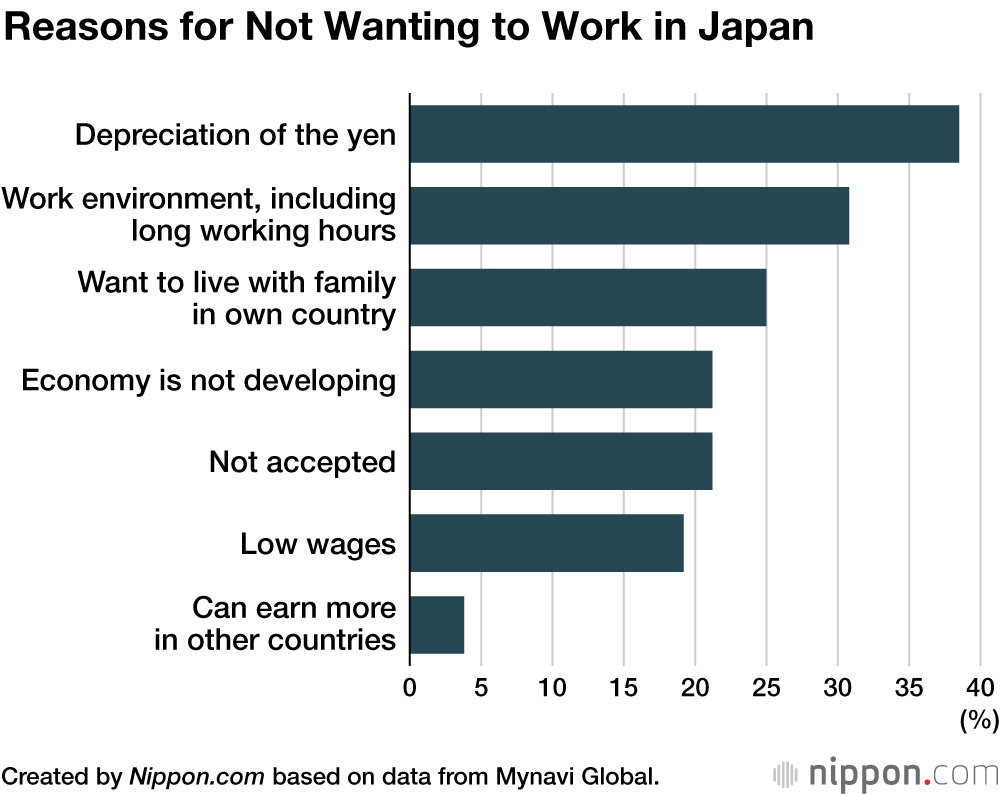
Weak Yen and Low Wages Decrease Japan’s Appeal to Foreign Workers
Society Economy- English
- 日本語
- 简体字
- 繁體字
- Français
- Español
- العربية
- Русский
Mynavi Global, a human resources company that recruits foreign workers in Japan, conducted a survey during January and February 2024, which revealed that, at 91%, there had been a drop of 5.8 percentage points from the 2022 survey among resident foreigners who “want to work in Japan after their current visa period ends.” Meanwhile, the percentage of people who “don’t want to work” in Japan increased by 1.6% to 5.7% in the same period.
As of the end of October 2023, the number of foreign workers in Japan hit a record high of 2 million. However, people’s desire to work in the country has fallen, which may make it more difficult to secure workers in the future.
Vietnamese Seeking Higher Wages
A significant drop was seen among Vietnamese people, who represent the largest nationality group among foreign workers in Japan, with the number who “want to work” in the country falling by 12.1 percentage points over the last two years to 85.9%. The rising development of their own country’s economy has led to Vietnamese workers increasing demands for higher wage levels. A Mynavi Global representative indicated that, due to the continuing depreciation of the yen, there had been a noticeable number of cases where contracts were not signed with Japanese companies.
The 2023 foreign employment statistics showed that Vietnamese workers increased by 12.1% year on year. While this was a visible rise following a slowdown during the COVID-19 pandemic, the rate of increase was only half that of 2019, prior to the crisis.
On the other hand, 94.4% of Indonesians, for whom the wage gap between their own country and Japan remains high, “want to work” in Japan, and the rate for Myanmar people also stayed high at 97.0%. In 2023, there were sharp increases in both the number of Indonesians and Myanmar working in Japan, with 56.0% and 49.9% respectively.
When respondents were asked their reason for “not wanting to work in Japan,” with multiple responses possible, the most common answer was “depreciation of the yen” at 38.5%. This was followed by “work environment,” including long working hours, at 30.8% and those who “want to live with their family in their own country” at 25.0%.
Popularity of Being Able to Bring Family
The current system allows foreign workers in Japan with the Specified Skilled Worker No. 2 status of residence to bring their spouse and children to Japan too. Despite it being difficult to acquire that status, at 63.6%, the percentage of people who want to apply for it was high.
Japan’s declining birthrate and aging population means that its working population will continue to fall, with the Japan International Cooperation Agency predicting that there will be a shortage of 420,000 foreign workers by 2040. Another issue is how to make Japan more attractive so that it is a “country of choice” for foreign workers, such as through new systems like the foreign worker training system, set to be introduced soon.
Yuzuriha Motoki, president of Mynavi Global analyzed the results, saying that “a growing number of foreign workers are citing salary level as a condition for choosing employment. It is clear the impact from the depreciation of the yen is making Japan a less attractive place to work. In order to have a greater number of foreigners who want to work here, there needs to be an improvement in the work conditions, including increasing the number of workers with Specified Skill Worker No. 2 status, which allows them to bring family members over and gives them rights that are practically the same as those for permanent residency.”
(Translated from Japanese. Banner photo © Pixta.)



